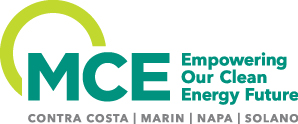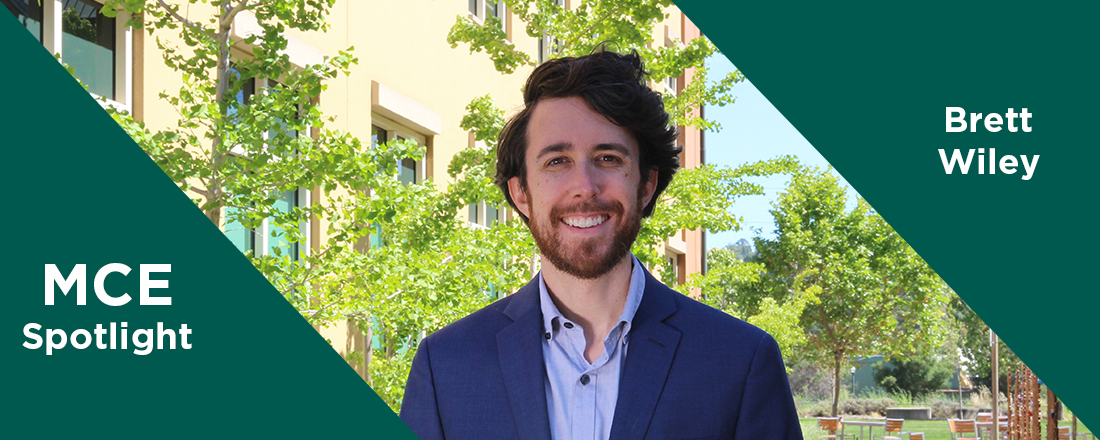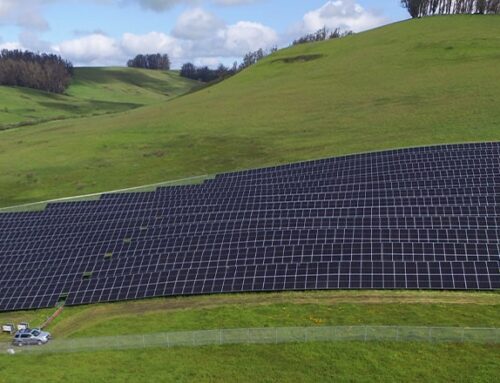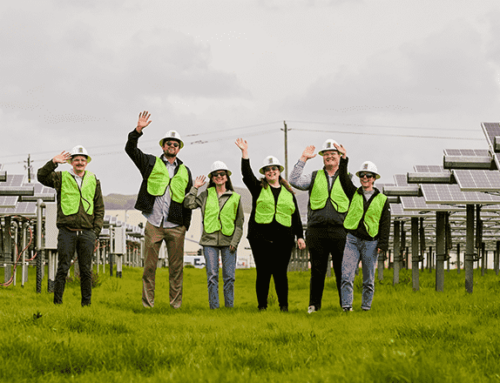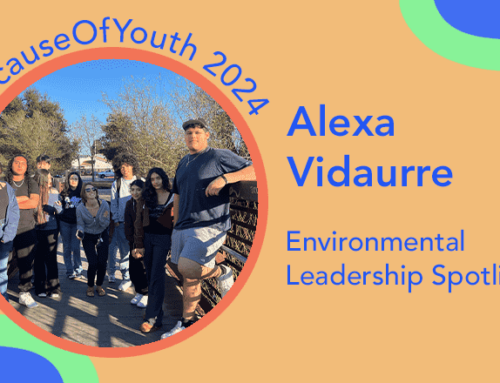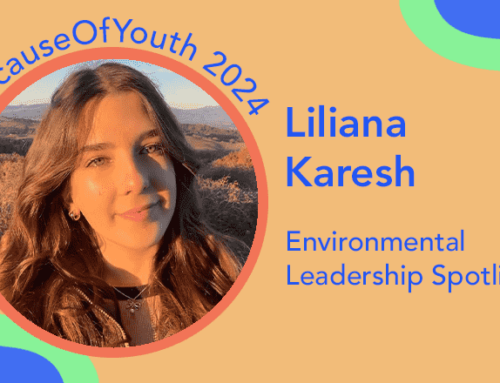MCE’s Employee Spotlight blog series gives an inside look on some of the incredible members of MCE’s staff and the sustainable actions that they take in their everyday lives. The views, opinions, and beliefs expressed here are not necessarily representative of the views, opinions, and beliefs of MCE as an agency.
This month’s spotlight focuses on Brett Wiley, MCE’s Customer Programs Manager. Brett currently manages programs that expand the electric vehicle (EV) charging infrastructure, increase access to EVs for low-income residents, and demonstrate the benefits of distributed energy resources.
Why did you decide to work at MCE?
I believe in MCE’s mission of realizing energy democracy and strengthening public participation in the energy transition. It’s important to switch from fossil fuels to renewables and build a new energy economy centered on workers and benefitting frontline communities. The energy transition needs to address who is involved in energy decisions, who is held accountable for those decisions, how money from these services is used, and who benefits. MCE answers those questions every day. I feel good knowing that the people benefitting from our work are the people who live in the communities that we serve.
What is one aspect of your work that is meaningful to you?
The biggest chunk of greenhouse gas emissions in the United States comes from transportation. It’s meaningful to me to work in reducing transportation-related emissions because even marginal improvements have significant impacts in staving off the worst effects of climate change.
An important aspect of this work is increasing access to EV charging and helping to make EVs accessible to low-income households. There are real structural things we can do to reduce the cost of EVs and expand charging. MCE’s EV rebate program reduces the price of vehicles, and our multifamily charging program reduces the cost of equipment and installation. MCE also connects customers to technical assistance for EV-related projects. With incentives, EVs tend to be even cheaper than gas cars. EV owners save an average of 50% on fuel costs, and EVs have less maintenance costs. When I connect people to these incentives, I get to help change the perception of who can own EVs.
How have you incorporated sustainable practices into your everyday life?
Fighting climate change and building resilient communities is my life’s work. I see climate change as a very human-centered issue and something that directly impacts vulnerable communities. It’s important to incorporate sustainable practices into my daily life so that I can show up to work knowing that I’m doing everything that I can. I compost, buy local produce, and grow food in my garden. Since 2008, I’ve lived in housing cooperatives where we buy in bulk and share resources. I haven’t owned a car since 2010, and I commute by biking, taking public transit, and walking. It sounds like a lot, and it’s also easier than it sounds since I built on these practices over the years.
What would you say to someone who wants to help the environment but feels their personal actions won’t make a difference?
To be honest, personal actions alone may not make a difference, but collective actions do. Organizations like MCE exist because of collective action. Collective action is required to reach our local and global climate and equity goals. These goals require institutional change organized from the bottom up. So, how do you connect the personal to the collective? I would encourage folks to attend a march or join a local organization. Have difficult conversations that bring others into the movement, instead of dismissing them for not being engaged. Donate to frontline environmental and climate justice organizations. These are all personal actions, but they relate to the collective work that we need to do.
How can people kick-start their sustainability journey?
Some good places to start are composting and reusing and reducing rather than buying new. I also recommend buying local from community-supported agriculture or farmers markets. Another easy lifestyle change is to opt up to 100% renewable electricity. Having renewable energy doesn’t have to mean putting solar on your roof. Whether you rent or own, opting up to Deep Green is the easiest and most affordable way to choose renewable energy. Also, check out this simple EV savings calculator for figuring out which EV is right for you, your lifestyle, and your budget.
